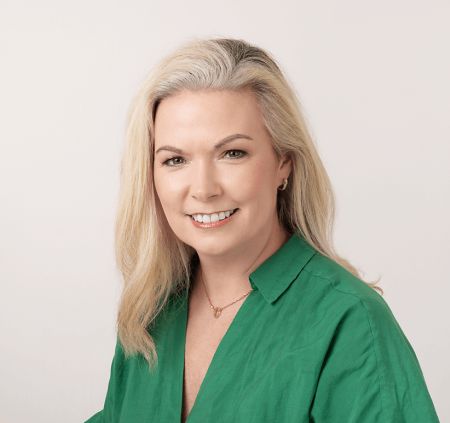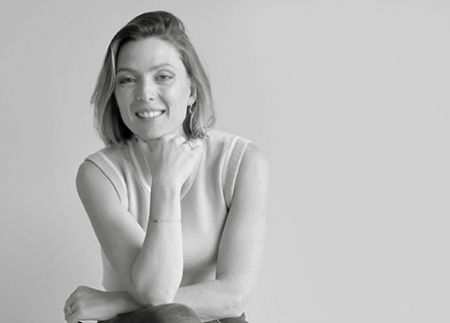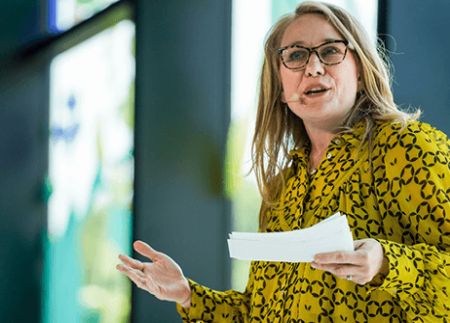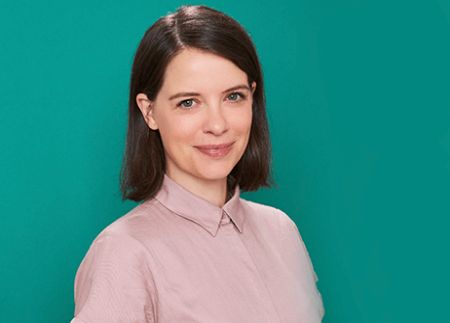As a business which is proudly female led, with a female CEO and chairperson, we recognize and champion International Women's Day each year. We work with many trailblazing female tech founders and investors, so we asked a group of them about their successes and the inclusion challenges that they still see across the industry. Here's what they had to say.
Diversity in tech

Zoe Peden | Partner | Ananda Impact Ventures
As with all sectors, diversity in tech is something to be cultivated, not least because it delivers "a different perspective into the design of a product or service and with leadership due to different life experiences," says Zoe Peden, partner at venture capital fund Ananda. Katie Critchlow, non-executive director of Earthblox, a SaaS platform for ESG data, extends this by pointing out that "getting more women into tech and early-stage innovation isn't just about 'doing good'. It makes complete sense for society to engage this under-utilised talent and creativity."
Elise Jenkins, founder and CTO of healthtech business OPTO, agrees: "Diverse founders or leaders are likely attuned to unmet needs and underserved markets . This allows for development of products which serve a broader range of users." Sandrine Zhong Ferron, CEO and founder of online vintage marketplace Vinterior, adds: "The danger is when people value more the perspective of people who look like themselves, which in the case of the tech industry looks like a white man."

Elise Jenkins | Founder and CTO | OPTO
Sandrine recalls her own experiences at the sharp end of this: "I had situations where I was the only woman in a group of startup founders, and people shook the male founder's hand and ignored me or assumed I was working in marketing or as an assistant. Luckily my male founder friend called this out and said 'Sandrine is also a founder and CEO'."
Mollie Claypool, founder and CEO of Automated Architecture (AUAR) tells it like it is: "Wealth - and VC funds - is predominantly held by white men, and until that wealth is redistributed to people from women, LGBTQI people and global minorities in an equitable amount to white men, we won't see a change in the diversity stats we are seeing."

Sandrine Zhang Ferron | Founder and CEO | Vinterior
This is a complex area, and Marie Outtier, co-founder and CEO at Aiden AI, looks at it from a very human perspective: "If you were told that female-founded companies received only 2% of all venture capital investment, would you throw yourself at the opportunity of starting a company that requires such funding to succeed? This percentage goes up to 12% if you have a mix-gendered founding team.1 With other career opportunities to consider, it seems logical that women would 'read the room' before making a decision about committing their entire livelihood to an entrepreneurial adventure."
A Harvard study2 showed that 70% of VC investors preferred pitches presented by male entrepreneurs over those presented by female entrepreneurs, even though the pitches were identical. These aren't encouraging stats, and Marie adds "I think it's wrong to look at the problem and to say 'less and less women are starting companies'. It's a consequence of the very poor chances of success, not the cause. The individual, however driven they are, isn't stronger than the system."

Mollie Claypool | Founder and CEO | Automated Architecture (AUAR)
This is also a critical societal issue from an educational perspective. "We are backing founders of Deeptech companies who are making significant scientific breakthroughs, but just 20% of the companies have a female member of the founding team," says Amelia Armour, partner at Amadeus Capital Partners. "Some of the diversity issues stem from female under-representation in physics, computer science and engineering degrees and so the pool that is then going on to be involved in founding tech companies is much smaller."
"I think culture and tradition has a lot of answer for," adds Jessi Baker, founder and CTO at Provenance. "I'm glad for mainstream content bringing inequality into the light. However, when it comes to challenging the norm, government intervention and more transparency is needed."

Marie Outtier | Co-founder and CEO | Aiden AI
Creating space and support
Finding common ground and support from fellow founders and mentors is essential, says Sandrine. "Founders all go through very similar challenges and talking about it with others can help you avoid some of the common mistakes and feel less alone. It's also rewarding to pay it forward." As Amelia puts it: "It's difficult to become what you cannot see."

Katie Critchlow | Non-Executive Director | Earthblox
Image courtesy of ChangeNOW
The founder journey can be isolating, especially during pressure points, so strong networks within tech are essential. Elise advises "anyone early in this journey should try to find and develop relationships with like-minded people. These might be other early-stage founders, and they don't have to be in similar fields to you."
Jessi agrees: "It's proven a more diverse workforce is a more successful one. But operating successfully, in a game that wasn't designed for you to flourish is difficult and there's still so far to go . But there are incredible women paving the way to a new future with equality at heart."
In Zoe's career path through the worlds of tech and VC, she has sought to establish a space where she can be herself. "I wanted to be my authentic self without having to adapt to the norm, and I'm very happy to say I'm in a position to be able to do that and it makes my time working with founders an absolute pleasure." Cat Hernandez Middleton, general partner at The Venture Collective, echoes this advice: "For those who are looking to break into the industry and/or build a brand for themselves, my only piece of advice is to be authentic in your endeavours."
Funding, and the culture around it, needs to evolve. Marie adds that "the funding landscape must change for entrepreneurship to become a 'sexier' path for women. The only way to change this is to intervene on all levels simultaneously to include more women decision makers, more role models and continued investment from top universities attracting diverse candidates. Only about 15% of all VC 'cheque-writers' are women today."

Amelia Armour | Partner | Amadeus Capital
How can we make progress?
Despite improvements in inclusion, not everything is moving forward at the same pace, and in fact the number of female founders regressed last year.3 Katie's reaction to this is straightforward: "having half the population excluded from driving society's most important stage of innovation is bonkers." Elise also recognises this issue, commenting that "diversity and equity is still a pain point in tech that needs attention. The nature of startups and venture capital is inherently risky, and the perceived risk is amplified by being a female founder."
Jessi warns that the scale of the challenge should not be underestimated: "Hearing stats that only 2% of female founded companies receive VC funds - whilst fundraising - spurs me on but also serves as a reminder that you can do everything right and the odds will still be against you just because of who you are." Cat's suggestion is to "put more money in the hands of female funders and founders because it not only is good for societal impact but also for driving outlier financial returns."

Cat Hernandez Middleton | General Partner | The Venture Collective
Sandrine and Zoe both see the same enduring root cause for this. "Childcare provision and cost and equal pay are at the base," says Zoe. Sandrine adds that the change that needs to be seen is in "providing flexibility for parents as an employer and being aware of the constraints a parent may face." Katie queries the preconception that the burden of childcare should fall to women and therefore eat into their career exclusively. "These perceptions mean women often end up carrying a much higher total work burden between home and paid work life and men feeling unable to ask for more flexible or part time hours."
There is still a worrying presumption that more risk seems to be associated with women. Whilst these incredibly outmoded views are rarely articulated specifically, Katie adds that "women get asked a lot more about managing downside risk vs male peers who get asked about upside opportunity."

Jessi Baker | Founder and CEO | Provenance
Refusing to be discouraged, Sandrine sees a simple way to address this: "It's a people business, especially when seeking funding. Providing women with a support network and access to the funders would allow more female founders to be funded." Zoe similarly looks forward to progress in the sector: "I love to see a founder rise up against the odds who looks and behaves differently than the tech role models we've seen for the last 30 years."
Jessi concludes: "If we want diversity in the workforce, we can wait for it to naturally course correct (or not), or we can redesign the rules to create the future we all want."
Footnotes
2. https://gap.hks.harvard.edu/investors-prefer-entrepreneurial-ventures-pitched-attractive-men
The content of this article is intended to provide a general guide to the subject matter. Specialist advice should be sought about your specific circumstances.





